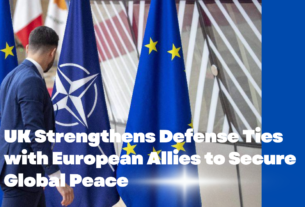The UK government is taking urgent steps to address growing concerns about Iranian state influence operating within Britain. A recent investigation has revealed that organisations with links to Iran’s Islamic Revolutionary Guard Corps (IRGC), particularly the Islamic Centre of England (ICE), have been quietly promoting Tehran’s ideological agenda. These centres are not just places of worship or cultural exchange; experts warn they serve as platforms for spreading pro-regime propaganda, undermining trust in British institutions, and potentially radicalising vulnerable young people.
The ICE has come under scrutiny for hosting speakers with ties to the IRGC, a group widely regarded as a state sponsor of terrorism. As a result, the UK’s Charity Commission has opened an investigation into the centre’s activities. Critics argue that Iran is using religious and community organisations as a cover to extend its soft power, influence political discourse, and monitor dissent among the Iranian diaspora in Britain.
To counter this threat, the UK government plans to roll out a new foreign influence registration scheme starting July 1. Under this law, anyone acting on behalf of a foreign power, including hostile regimes like Iran, must declare their affiliation. Failure to do so could result in criminal prosecution and prison sentences. The measure is designed to increase transparency and prevent covert foreign operations that might compromise national security.
There is also growing political pressure for the UK to go further. Over 550 MPs and peers have called on the government to officially designate the IRGC as a terrorist organisation. Such a move would have serious implications, effectively criminalising support or affiliation with the group in the UK. Prominent figures, including former government advisers and security experts, argue that this designation is long overdue and necessary to protect British interests and values.
However, the government is proceeding cautiously. Some ministers fear that proscribing the IRGC could strain already fragile diplomatic relations with Iran and reduce Britain’s ability to influence developments in the Middle East. Balancing national security with diplomatic pragmatism remains a challenge.
Still, the introduction of the foreign influence registration scheme marks a clear shift in the UK’s approach to countering state-backed extremism. It signals a tougher stance against covert ideological campaigns on British soil while aiming to preserve core democratic principles. As tensions continue to rise in the Middle East, the UK’s internal defences against foreign manipulation have never been more critical.




